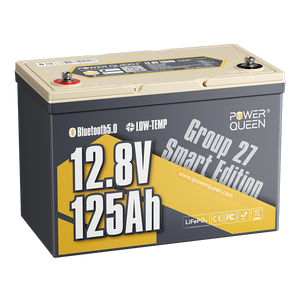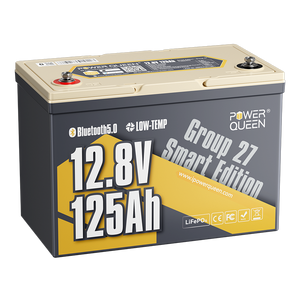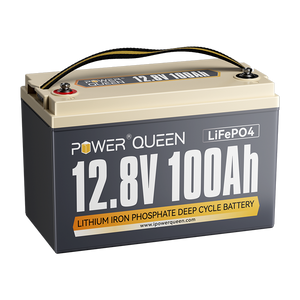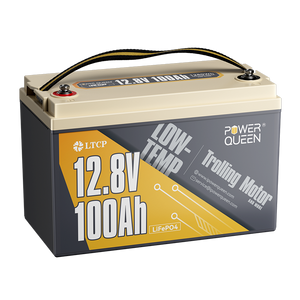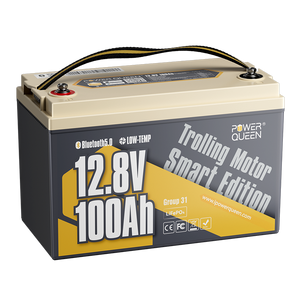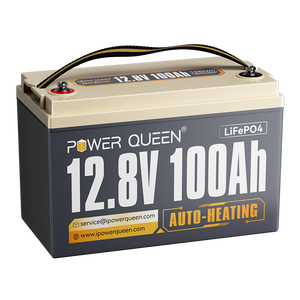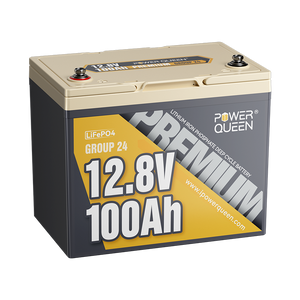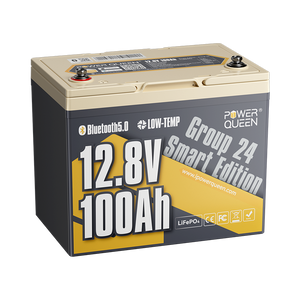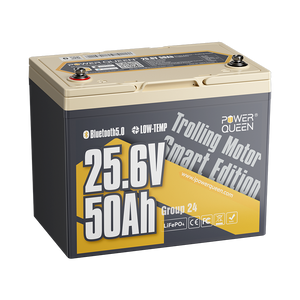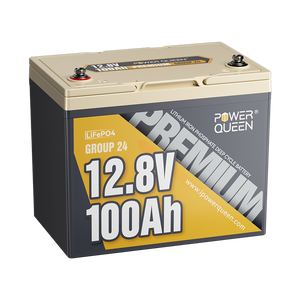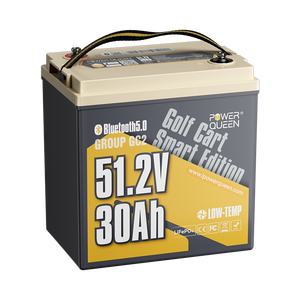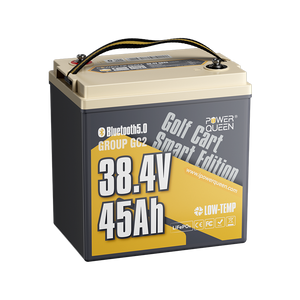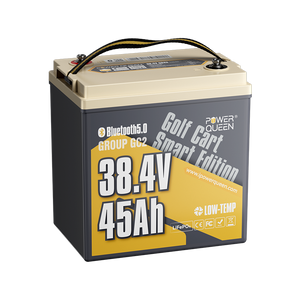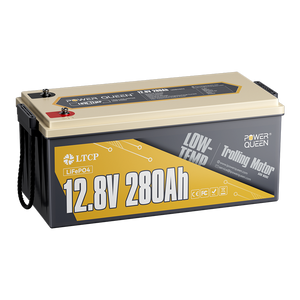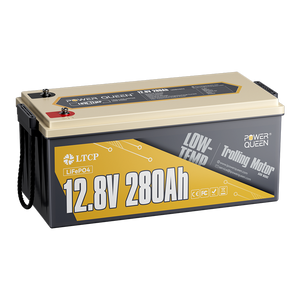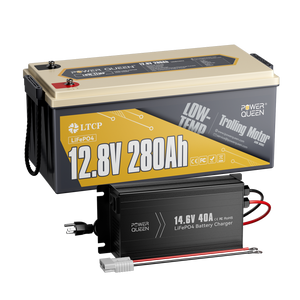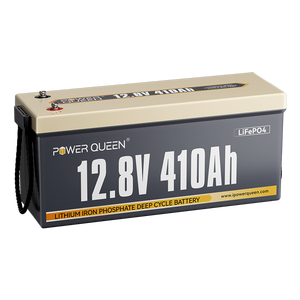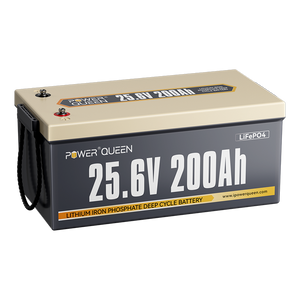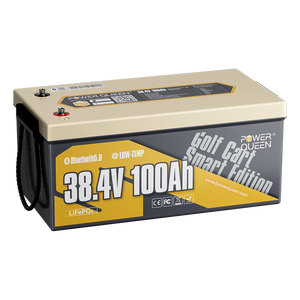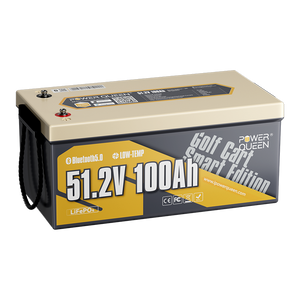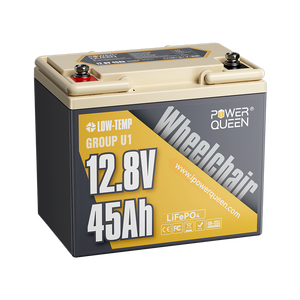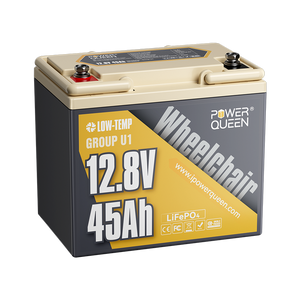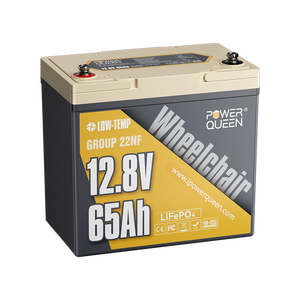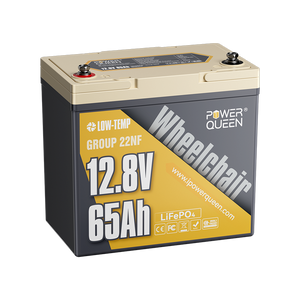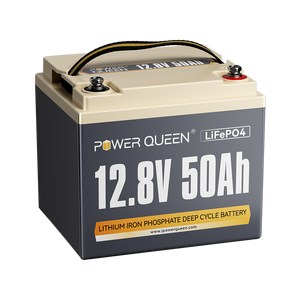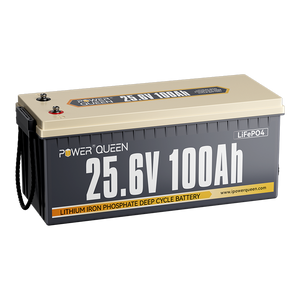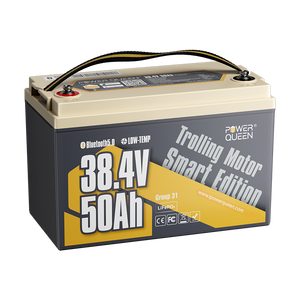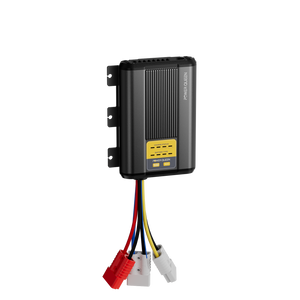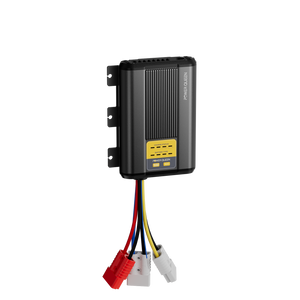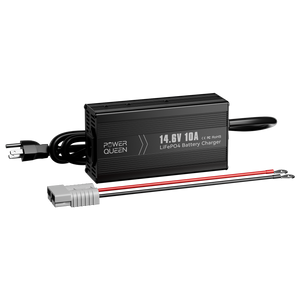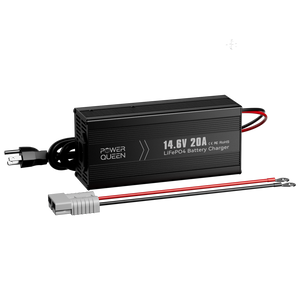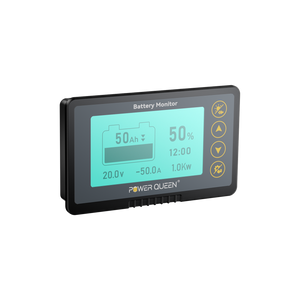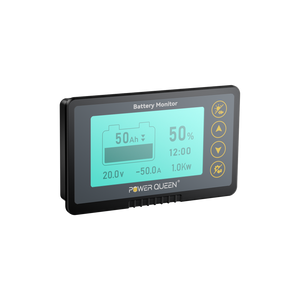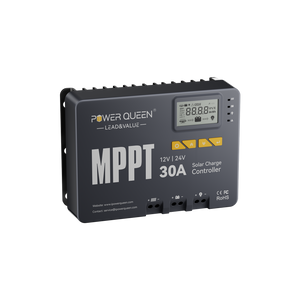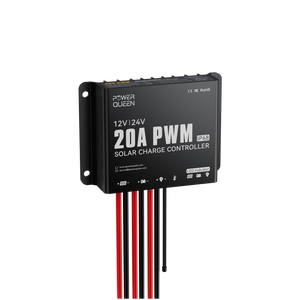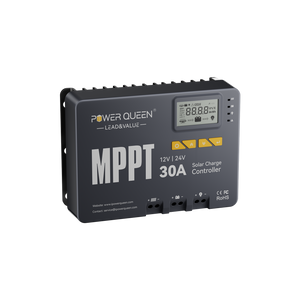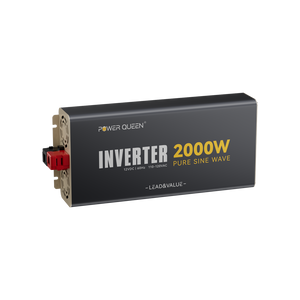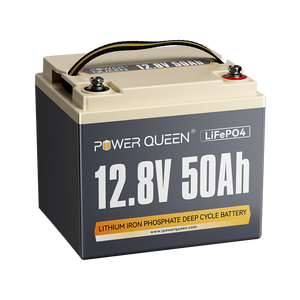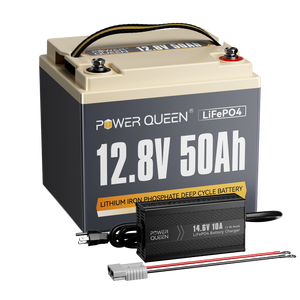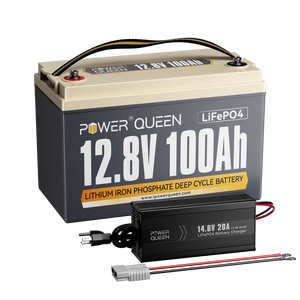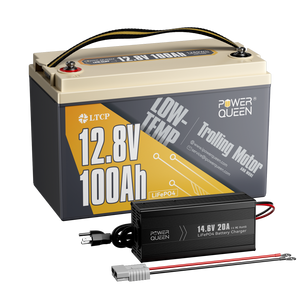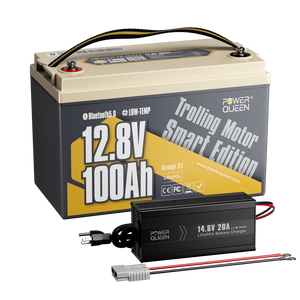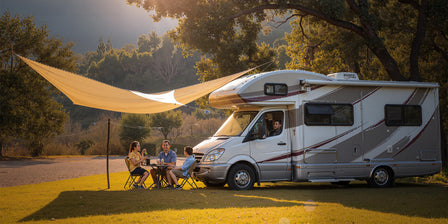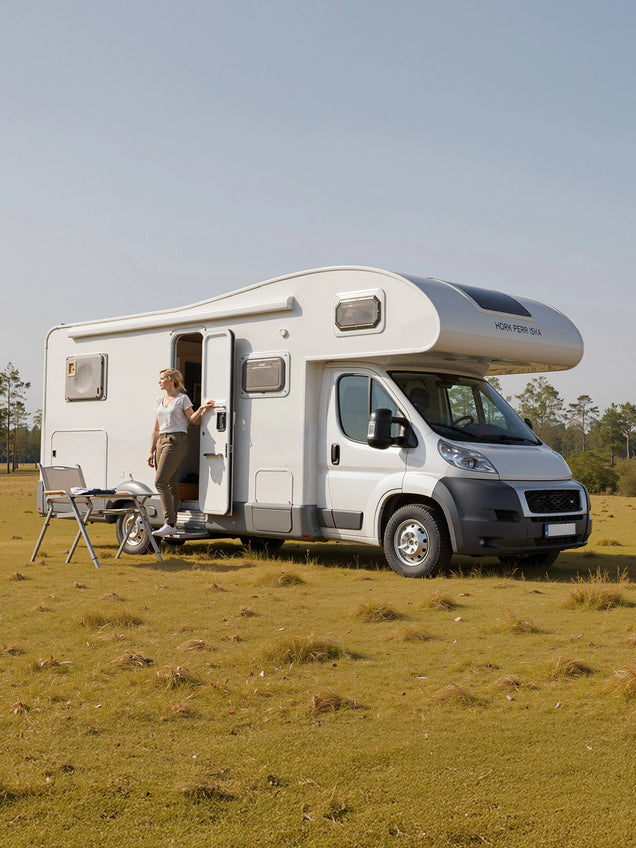Golf Cart Batteries: Everything You Need To Know
There are many options when it comes to golf cart batteries, from battery type to battery life and cost. Whether you’re looking for long-lasting performance or something more affordable, making the right choice can seem overwhelming.
Below, we’ll detail everything you need to know about lithium and lead-acid batteries, battery voltage levels, and how to choose the best battery for your golf cart. By understanding these factors, you can choose the right battery to keep your cart running smoothly for years to come.
Table of Content
- Part 1. Types of Golf Cart Batteries: Lithium Vs. Lead-Acid
- Part 2. 5 Voltage Types of Golf Cart Batteries
- 2.1 6 Volt Golf Cart Batteries
- 2.2 8 Volt Golf Cart Batteries
- 2.3 12 Volt Golf Cart Batteries
- 2.4 36 Volt Golf Cart Batteries
- 2.5 48V Golf Cart Batteries
- Part 3. Golf Cart Battery Charging and Maintenance
- Part 4. In Conclusion
- Part 5. Frequently Asked Questions
Part 1. Types of Golf Cart Batteries: Lithium Vs. Lead-Acid
1.1 Lithium Batteries
Lithium batteries are known for their long lifespan, lightweight, and efficiency. They provide more energy per charge, making them a popular choice for those who want to travel farther without frequent recharging. Lithium batteries also charge faster than lead-acid batteries, reducing downtime.
Additionally, they require little to no maintenance, unlike traditional lead-acid batteries. Though they come with a higher upfront cost, their long-term benefits, like reduced replacement frequency, often make them a cost-effective option over time.
1.2 Lead-Acid Batteries
Lead-acid batteries are the traditional choice for golf carts. They are more affordable initially but require regular maintenance, such as checking water levels and cleaning terminals. These batteries are heavier and have a shorter lifespan than lithium batteries, but they still provide reliable power. Many golf carts are designed for lead-acid batteries, and they are a good option for users who don’t need the extended range or efficiency offered by lithium.
Related read: Comparison of LiFePO4 battery vs Lead-acid battery.
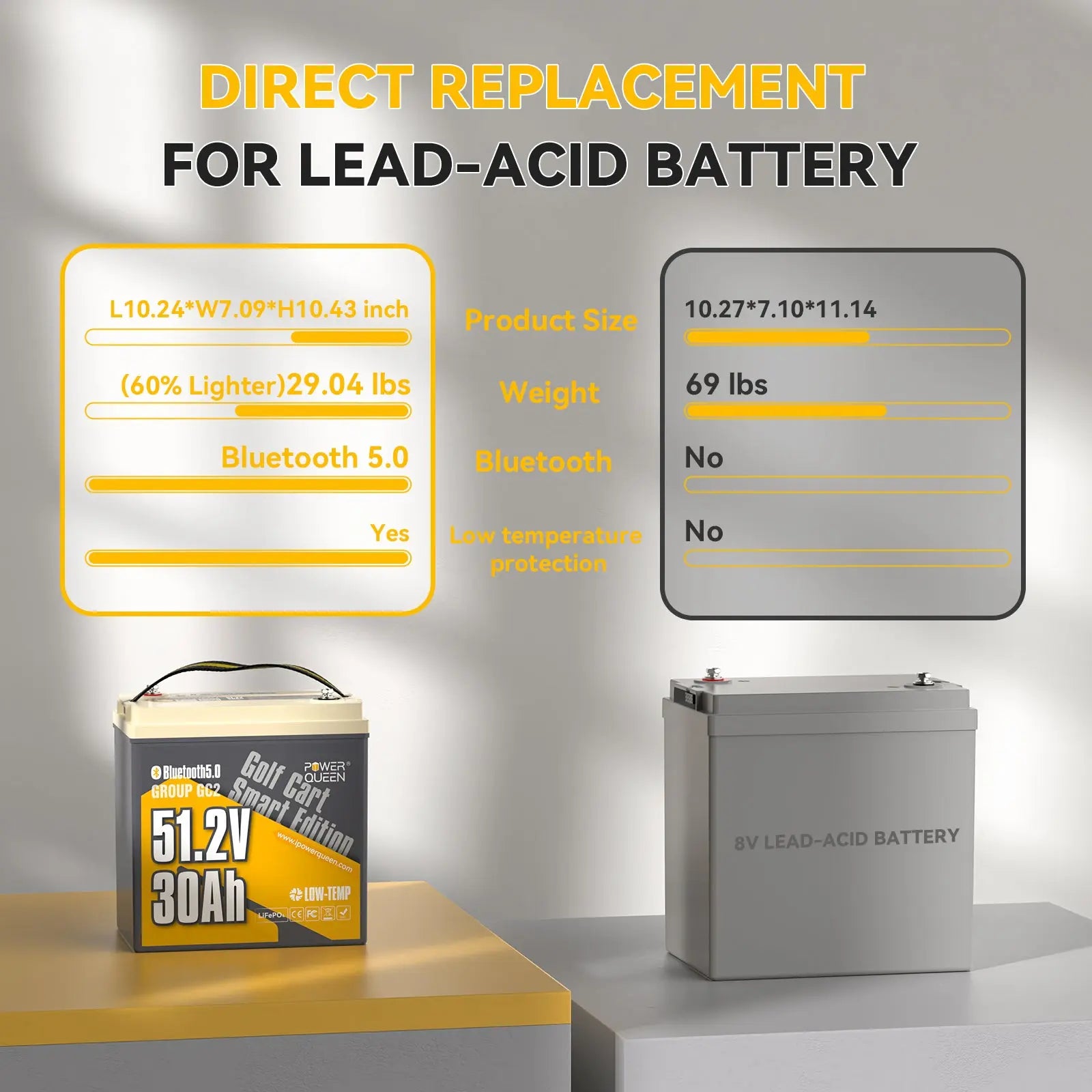
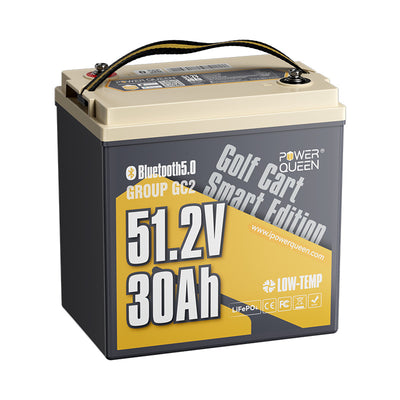

Part 2. 5 Voltage Types of Golf Cart Batteries
Lithium batteries come in a variety of voltage levels, such as 6V, 8V, 12V, 36, and 48V, each suitable for different types of devices and applications. Here’s a breakdown of each voltage type, along with a guide on how to choose the right one for your needs.
2.1 6 Volt Golf Cart Batteries
6 Volt golf cart batteries are commonly used in 36 Volt golf carts by connecting multiple batteries in series. The main advantage of 6-volt batteries is their higher amp-hour capacity, which means they can store more energy and last longer between charges. They also have a longer lifespan compared to other voltage options. For example, a typical 6-volt battery setup can provide efficient, long-term power to your golf cart, making it a popular choice for those looking for durability.
Pros:
- Higher Capacity: 6-volt batteries typically have more ampere-hours (Ah), which means they last longer per charge.
- Longer Life: They tend to last longer due to their deep-cycle design.
- Good for Heavy Use: Ideal for golf carts that need extended range and durability, such as those that travel over hilly terrain or are used for long trips.
Cons:
- More Batteries Required: Due to the lower voltage, you’ll need to connect more batteries in series to reach the desired voltage (36V or 48V).
- Heavier: Their larger size and weight make them bulkier to install and maintain.
2.2 8 Volt Golf Cart Batteries
8-Volt golf cart batteries are most commonly used in 48-Volt golf carts. These carts require six 8-volt batteries to operate efficiently. The 8-Volt option offers a balanced combination of power and efficiency, providing reliable performance for moderate energy needs. These batteries are often seen as a good choice for carts that need more power without sacrificing too much energy storage capacity.
Pros:
- Balanced Performance: These batteries offer a good balance between power and runtime, making them a solid middle-of-the-road choice.
- Fewer Batteries: Fewer 8-volt batteries are required to reach the desired voltage compared to 6-volt batteries, reducing overall weight.
Cons:
- Shorter life: They don’t usually last as long as 6-volt batteries.
- Mid-range performance: While they offer balance, they may not offer the same life or power as 6-volt and 12-volt batteries
2.3 12 Volt Golf Cart Batteries
12-volt golf cart batteries are used in systems such as 36-volt setups, which require three 12-volt batteries. While they are more compact, which can reduce the number of batteries needed, 12-volt batteries generally offer lower amp-hour capacity and a shorter lifespan than 6- and 8-volt batteries. They are ideal for golf carts with lower energy demands but may require more frequent charging or replacement over time. When comparing 12-volt batteries to 6- and 8-volt batteries, the trade-off is often between convenience and long-term durability.
Pros:
- Fewer batteries required: You need fewer 12-volt batteries to reach the desired system voltage, making installation simpler and lighter.
- Higher power output: They can deliver more power in shorter bursts, which is great for carts that need to accelerate quickly.
Cons:
- Lower capacity: They have fewer amp hours, which means they don’t last as long on a single charge.
- Shorter life: Due to the design and higher power consumption, 12-volt batteries tend to have a shorter life than both 6-volt and 8-volt batteries.
2.4 36 Volt Golf Cart Batteries
These are increasingly popular, particularly as lithium-ion options become more common. A single 36V lithium battery can replace the traditional six 6V batteries, offering better efficiency, lighter weight, and longer lifespan.
The Power Queen 36V Lithium Battery is a powerful and reliable option for golf carts and electric motors. With a high surge discharge current of 500A, it can handle demanding applications like trolling motors with ease.

Pros:
- Energy Efficiency: They consume less energy compared to higher-voltage systems like 48V, making them more cost-effective in the long run.
- Lower Cost: 36V systems are generally cheaper to purchase and maintain than 48V systems.
- Widely Available: It is very common and easy to find in most stores.
- Compatibility: Suitable for standard golf carts and can be easily replaced without modifying the cart.
- Charging time: Full charge time is shorter compared to 48V lithium-ion batteries.
Cons:
- Performance: Not suitable for steep slopes or heavy loads due to speed issues.
This provides a balance of cost and performance, but for more demanding tasks, 48V systems or lithium alternatives may be preferable.
2.5 48V Golf Cart Batteries
Often found in modern golf carts, 48-volt lithium batteries offer superior power, efficiency, and longevity. They charge faster, last longer, and require less maintenance than traditional lead-acid batteries. If you want top-tier performance and are willing to invest in a premium battery, 48V lithium batteries are the way to go.
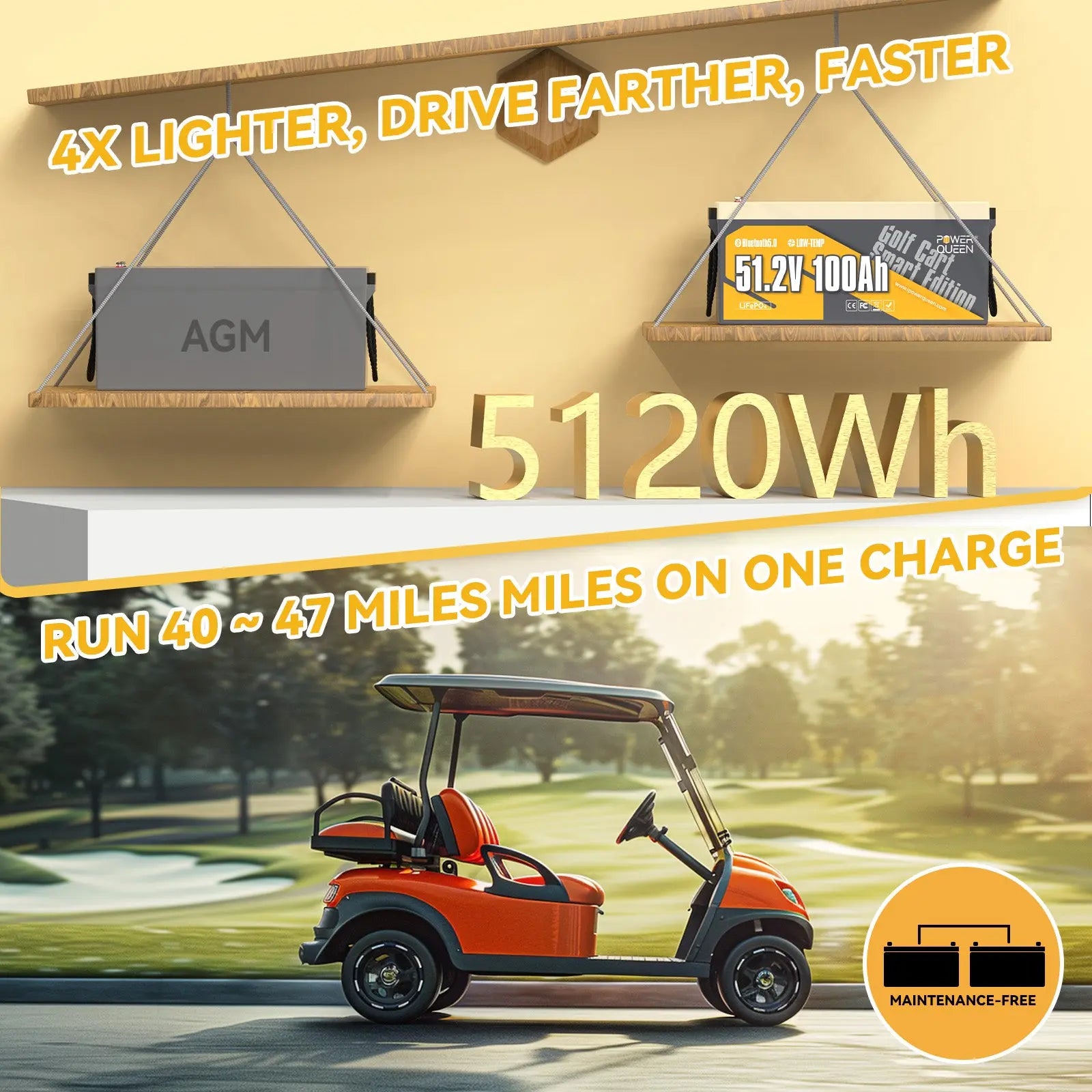
Pros:
- Fast Charging: Lithium-ion batteries charge much faster than traditional lead-acid options.
- Lightweight: They are significantly lighter, reducing the overall weight of the golf cart.
- Long Lifespan: Lithium batteries offer up to 4,000-15,000 charge cycles, equating to 10+ years of use.
- Minimal Maintenance: No need to check fluid levels or deal with corrosion, unlike lead-acid batteries.
Cons:
- Higher Initial Cost: The upfront investment is significantly higher than traditional batteries, though long-term savings can offset this.
- Limited Availability: Not as widely available as lead-acid batteries.
Each voltage type is suited to different needs, depending on how often the golf cart is used and the performance level required.
The Power Queen 48V Lithium battery is the perfect choice for the modern golf cart, with a fast-charging design and long-lasting performance to ensure you get the most out of every charge. It is approximately 70% lighter than traditional lead-acid batteries, making installation easier and reducing overall vehicle weight. The 200A BMS with Bluetooth 5.0 allows for real-time monitoring and seamless battery management.
Part 3. Golf Cart Battery Charging and Maintenance
Proper charging and maintenance are key to extending the life of your golf cart battery. Regular maintenance ensures consistent performance and prevents premature failure.
3.1 Choose the Right Charger
For 36-volt golf carts, it is critical to use the right charger. A compatible charger ensures efficient charging and reduces the risk of battery damage. Look for smart chargers that automatically shut off when the battery is fully charged to avoid overcharging, which can shorten the battery life.

3.2 Avoid Overcharging
Overcharging is one of the most common problems that can harm golf cart batteries. It can cause overheating and reduce the battery's efficiency over time. Always use a charger with an automatic cutoff feature and monitor the battery during charging. Never leave it connected for long periods after it is fully charged.
3.3 Troubleshoot Common Charging Problems
If your battery takes longer to charge or drains quickly, it could be a sign of a problem. Check the charger and battery connections for corrosion or damage and clean them regularly. If charging problems persist, it's best to have a professional test the battery to ensure it's functioning properly.
By following these simple steps, you can maximize the life of your golf cart battery and maintain its performance for years to come.
Part 4. In Conclusion
If you want the best performance, with a longer lifespan and quicker charging, and are willing to invest more money upfront, 48V lithium batteries are the way to go.
Choose 6-volt batteries if you need long-lasting power and durability for heavy use. Opt for 8-volt batteries if you want a balance of power and weight. Go for 12-volt batteries if you prioritize a lighter, simpler setup with faster acceleration.
If you want the best performance and faster charging, and don’t mind a higher upfront cost for long-term benefits, choose Power Queen’s 48V lithium battery for its combination of durability, efficiency, and low maintenance to deliver the best value for your golf cart investment.
Part 5. Frequently Asked Questions
5.1 How to Charge Lithium Battery?
Lithium batteries should be charged with a dedicated charger that uses a constant current/constant voltage (CC/CV) system to avoid overcharging or undercharging. It's important to charge them at the correct voltage and current while avoiding deep discharges and extreme temperatures. Using a balanced charger for series configurations ensures all cells charge evenly, maximizing performance and lifespan.
5.2 How Long Do Golf Cart Batteries Last?
The lifespan of golf cart batteries depends on how well they are maintained and how frequently the cart is used. For fleet golf carts, which are used more frequently, battery packs typically last between 4 to 6 years. In contrast, privately owned golf carts, which often experience lighter use, can see battery lifespans ranging from 6 to 10 years.
Other factors that can impact battery life include the type of accessories or options installed on the golf cart, as these can increase power consumption and reduce battery longevity. Proper maintenance and charging practices are key to maximizing battery life.
5.3 How Much Do Golf Cart Batteries Cost?
The cost of a golf cart battery depends on the type and voltage of the battery you choose. Traditional lead-acid batteries are more affordable, with a full set typically costing between $800 and $1,500, depending on the number of batteries you need. However, they require more maintenance and have a shorter lifespan.
Lithium batteries, on the other hand, have a higher upfront cost, costing between $2,000 and $3,000 or more for a set, but they last longer, require less maintenance, and have faster recharge times. Ultimately, your choice depends on whether you prioritize lower upfront costs or long-term convenience and performance.
5.4 How long Do 48-volt Golf Cart Batteries last?
A typical 48-volt golf cart battery lasts 5 to 7 years, depending on how well it's maintained. Regular charging, proper storage, and avoiding deep discharges are important to extending the battery’s life.
For longer-lasting performance, the Power Queen 48V lithium battery is a great choice. It offers 4,000 to 15,000 charging cycles, giving it a lifespan of over 10 years with minimal maintenance. If you want efficient, fast-charging power for your golf cart, this battery is built to deliver superior longevity.
